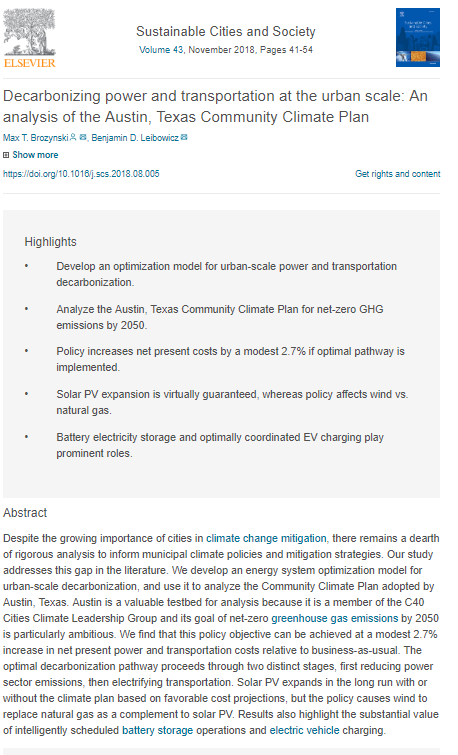New paper: Decarbonizing power and transportation at the urban scale

An analysis of the Austin, Texas Community Climate Plan
In a r ecent peer-reviewed publication , researchers from The University of Texas at Austin developed an energy system optimization model for urban-scale decarbonization and used it to analyse the Community Climate Plan adopted by Austin, Texas. The study aims to address the gap in municipal climate policies and mitigation strategies. Austin was chosen as the case study in this analysis since it is a member of the C40 Cities Climate Leadership Group and it has an ambitious goal of net-zero greenhouse gas emissions by 2050. Researchers found that this policy objective can be achieved at a modest 2.7% increase in net present power and transportation costs relative to business-as-usual. Additionally, the optimal decarbonization pathway proceeds through two distinct stages, first reducing power sector emissions, then electrifying transportation. Furthermore, they conclude that Solar PV expands in the long run with or without the climate plan based on favourable cost projections, but the policy causes the wind to replace natural gas as a complement to solar PV. Study results highlight the importance of intelligently scheduled battery storage operations and electric vehicle charging.
